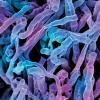Stuart Dawe-Long, Senior Healthcare Scientist (Andrology Lead) and Clinical Andrologist at Manchester University NHS Foundation Trust, looks at some of the issues.

Men’s Health Week (12–18 June) is an opportunity to heighten awareness of preventable health problems for males of all ages and encourage the early detection and treatment of health difficulties in males.
When we think of men’s health, there is often a generalisation about the “stubborn man” unwilling to get help. This negative stereotype supposes that men need to learn to help themselves before any additional support can be offered. In my career as a Clinical Andrologist, I usually experience the opposite and have had an incredible amount of open conversations with men about stress, sexual dysfunction, cancer and mental health.
It’s my belief that we simply need to shift towards promoting and sharing awareness of the signs and symptoms of male health problems – helping unwell men to realise it’s time to seek the advice of a medical professional.
Fertility
Fertility issues have risen to an all-time high, with latest World Health Organization figures indicating that around 17.5% of the population experience infertility. Male infertility is a potential contributing factor in up to half of all cases and can have varying causes including: genetic, endocrinological, chronic illness, medication and lifestyle. The first step is a diagnostic semen analysis through your GP or andrologist. Once this is sent through, the lab will ensure they provide comprehensive results to your referrer.
Testosterone deficiency
Testosterone deficiency is a common condition that affects millions of men around the world. Testosterone supports puberty, muscle strength, libido and focus. It can also have an important role in metabolic disorders. Men who find they increasingly have difficulty concentrating or making decisions, have poor results from exercise programmes, have increased body fat or are losing muscle mass should visit their GP for a review, including a testosterone level check.
Cancer
Prostate cancer is the most common cancer in men, with over 140 diagnoses each day. It is most common in men over the age of 50. Symptoms can include: needing to urinate more frequently, needing to rush to the toilet, difficulty in starting to urinate, straining or taking a long time while urinating, weak flow, feeling that your bladder has not emptied fully, and blood in urine or semen.
Testicular cancer is the most common cancer in men between the ages of 15 and 35. Symptoms may include: a painless lump or swelling on either testicle, pain, discomfort or numbness in a testicle or the scrotum (with or without swelling), change in the way a testicle feels or a feeling of heaviness in the scrotum, and a dull ache in the lower abdomen or groin.
Penile cancer is a rare type of cancer that affects the penis. It is most common in men over the age of 50. Symptoms include: an area of skin becoming thicker, changes in skin colour, a lump, an ulcer that might bleed, a reddish, velvety rash under the foreskin, small, crusty bumps, flat, bluish-brown growths and smelly discharge or bleeding under the foreskin.
We can all do our part to support men’s health by talking to our male friends and family members about these symptoms and raising awareness.
Image credit | Shutterstock




